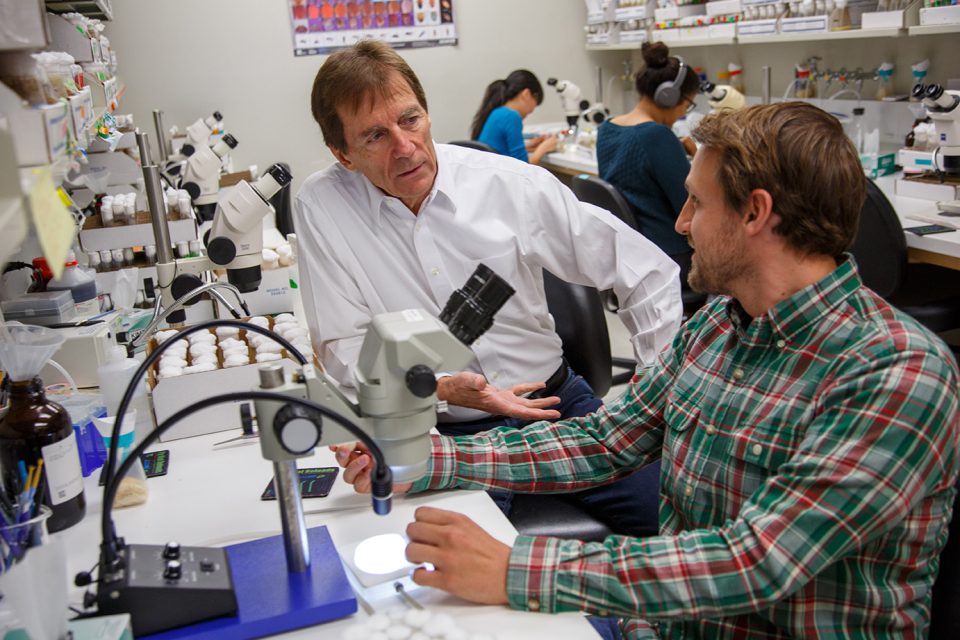A new field of neuroscience aims to understand the processes that limit memories and induce forgetting.

Why is the process of memory formation in the brain so limited? Why do we, except in the rarest cases, form durable memories of only a tiny fraction of the events in our lives? How is the making of memories restricted? How does forgetting occur? These are some of the important questions being asked in a, so far, small and new field of neuroscience, pioneered by scientists at Scripps Research in Florida and others.
The study of so-called memory suppressor genes represents a relatively unexplored side of memory research, which has tended to focus instead on genes and other factors that enhance memory, says Ron Davis, PhD, a neuroscience professor at Scripps Research and senior author of the first major review of the new field, which appears online Aug. 26 in the journal Neuron.
Mechanisms that limit memory formation and consolidation, and drive the forgetting of unnecessary information, represent a vital part of how memory works in a normal, healthy brain, much as brakes are a vital part of driving.
“Memory formation and related processes are normally very limited in humans and other animals, and you can’t fully understand memory without understanding why and how those limits are imposed,” Davis says.
Genes are considered “memory suppressors” if, when they are active, it becomes more difficult for an animal to form or consolidate memories, or it becomes easier for them to forget that information. In the past two decades, researchers have discovered about 100 of these memory-suppressor genes in mice and other lab animals. Davis’s lab has been in the forefront of this research, contributing findings on the roles of the neurotransmitter dopamine, the proteins Stromalin and Scribble, and the RNA miR-92a—among others—in the suppression of memory formation and consolidation, and in forgetting.
Davis and his co-authors, Nathaniel Noyes, PhD, and Anna Phan, PhD, both postdoctoral researchers in his lab at the time of writing, cover many of these discoveries in their review paper, and discuss what is known about how these findings fit in to the larger picture of memory functions. Phan is now an assistant professor at the University of Alberta.

The memory suppression field is young, and that larger picture is still a long way from coming together clearly. One big unknown, according to Davis, is the reason, in terms of overall behavior and evolutionary fitness, why these memory suppressors do what they do.
“Probably the most parsimonious explanation for the limiting of memory-formation and memory–consolidation is that it is required for behavioral flexibility—it helps prevent inconsequential information or spurious associations from entering long-term memory,” he says.
Forgetting, he adds, would be valuable to organisms for a similar reason—erasing no longer valid associations which might otherwise steer behavior in harmful directions.
In that sense, an inherited deficiency of normal memory limitation, though it might boost learning and memory, would almost never be a good thing overall. Indeed, the classic memory overachiever, the “savant” who can remember pi to thousands of places or memorize an entire country’s train schedules, tends to have superior memory skills in just one narrow area, and otherwise often exhibits autistic behavior, or some other significant cognitive impairment.
“People with exceptional memory are almost always compromised in some other way,” Davis says.
Still, as he notes, there are very rare individuals, described in the neuroscience literature, who have what is called “highly superior autobiographical memory,” such that they can easily recall randomly chosen days of their lives in great detail—seemingly without a negative impact on their cognition or behavior. Thus it is at least conceivable that there are safe ways to durably boost memory capabilities.
As researchers in this field clarify how memory suppression works, and how it relates to behavior, they may develop strategies to do just that to help people with memory disorders or dementias. The same research could also yield new ways of enhancing forgetting, for example for people with mental health issues stemming from traumatic or otherwise unwanted memories.
“Memory-suppressor research is very new and hasn’t yet generated clinical applications, but it’s easy to imagine what some of those applications could be in the future,” Davis says.